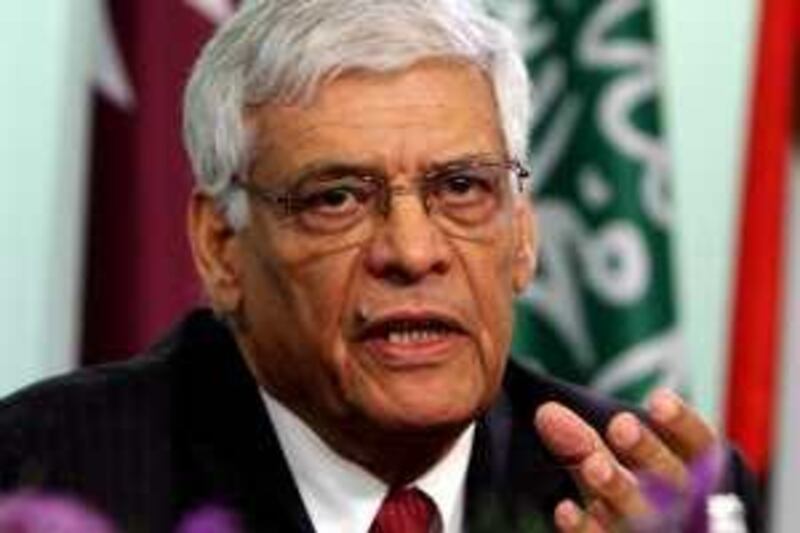VIENNA // Opec warned oil consumers of another speculative attack on energy prices yesterday as crude oil hit a six-month high above $66, and one banker predicted a return to the $100 barrel. Crude oil futures are poised for their largest monthly gain in a decade, having already risen 38 per cent this month, despite a bleak outlook for demand.
Abdalla el Badri, the secretary-general of Opec, said latest supply and demand trends did not support the current price. "Speculators are coming back, not only into oil but other commodities," he told reporters a day after the organisation elected to leave its output quotas unchanged. A speculative spike in oil prices last year, which took crude to a record $147 a barrel, is believed by many economists to have contributed to the recession in the West.
"We don't want to see them again. We cannot eliminate them but we don't want them to be a main factor for price increase," Mr el Badri said, adding that he preferred to see a gradual increase in oil prices based on improved economic growth. Some now fear that rising energy costs could delay a global economic recovery, particularly in the US, where consumer spending has been hurt by unemployment and tight credit.
Opec was hoping that a demand rebound, already perceptible in Asia, would draw down brimming stocks of stored oil and push prices up to $70-$75 a barrel by the year-end, Mr el Badri said. Casenove, the investment bank, said a return to $100 oil was inevitable within two years because Opec would be stretched to the limits of its production capacity as the global economy recovered. Barack Obama, the US president who is expected to visit Saudi Arabia next week, said no one would benefit from a price spike.
"I don't think it's in Saudi Arabia's interests to have a situation in which our economy is dependent, or disrupted constantly, by huge spikes in energy prices," Mr Obama said when asked by a reporter what his message would be during his June 3 visit. The Saudi monarch, King Abdullah, has called $75 a barrel a fair price for oil. Mr el Badri said last year's price slump had prompted Opec to shelve 35 of its 150 capacity expansion projects.
The organisation had reduced exports by more than three million barrels a day since September and the 13-member group had lost market share, but he expressed hopes of regaining that over the medium term. Competitors such as Russia, Kazakhstan, Norway and Oman have all increased output as Opec has cut. Mexican output fell, but only because of operational problems. Major oil consumers have come round to Saudi Arabia's price target, partly because of the need to encourage investment in alternatives.
Mr Obama said pushing alternatives was needed because traditional energy supplies would be under pressure from growing Asian economies. "There are going to be a whole host of countries like China and India that have huge populations, need to develop rapidly," he said. During his election campaign, Mr Obama said he wanted to end US oil imports from the Middle East and Venezuela within a decade. "I'll be very honest with King Abdullah, with whom I've developed a good relationship, indicating to him that we're not going to be eliminating our need for oil imports in the immediate future. That's not our goal," Mr Obama said. "What our goal has to be is to advance the clean energy solution in this country."
tashby@thenational.ae





